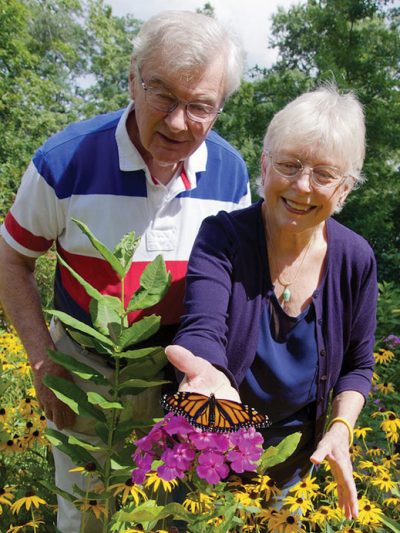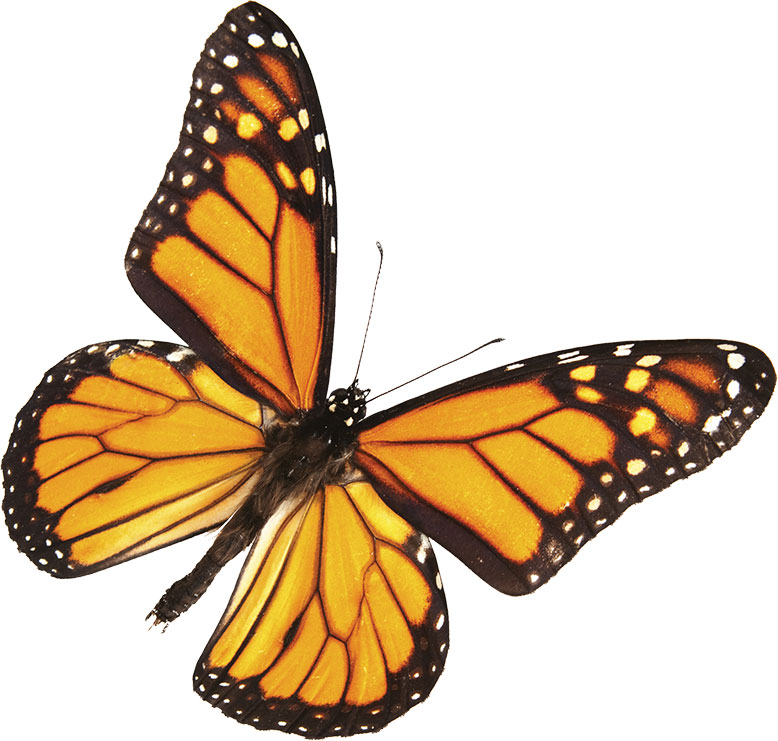
Kathleen Palmer’s Bernardsville garden is filled with azaleas, tiger lilies, hydrangeas, black-eyed Susans and Japanese red maples. But it is the common milkweed that attracts Palmer’s favorite guests, the monarch butterflies that visit every year.
Palmer’s well-kept jungle serves as a summertime refuge for the winged insects on their northern migration. Since 2006, the garden has been a registered waystation with Monarch Watch, an organization dedicated to assuring a future for monarchs in the face of habitat loss. (Other New Jersey waystations include Duke Farms in Hillsborough.)
“I want to bring awareness about the plight of the monarchs and all pollinators,” says Palmer, 74.
Palmer didn’t plant the milkweed that monarchs crave; it just sprang up. She considers it nature’s way of telling her to continue her childhood endeavor of raising butterflies. “I never know when the first one will come,” says Palmer. “For me, it’s a very exciting time to see one or find an egg.”
The mother monarchs arrive in Palmer’s garden and lay their microscopic, white eggs on the underside of the milkweed leaves. Palmer moves the eggs indoors and nurtures them with milkweed and nectar from plants through their metamorphosis from caterpillar to chrysalis (when they develop wings) to adult butterfly. The process runs from late spring to early autumn, when Palmer releases the adults back into the wild.
In addition to habitat loss, monarchs are threatened by natural predators, including ladybugs, milkweed beetles and grasshoppers, all of which enjoy eating monarch eggs. Praying mantises, though beneficial in keeping mosquitoes away from Palmer’s garden, also feast on monarch eggs, as well as caterpillars and adult butterfly bodies. (Oddly, they have a distaste for butterfly wings.)

Photo courtesy of Shutterstock
Palmer keeps detailed records of the monarchs in her care, including their sex, which she determines based on a pattern on their wings. Before release, she carefully tags the insects for future tracking. In 2017, Palmer raised, tagged and released 195 butterflies. Her helpers include her husband, freeholder and former Bernardsville mayor Peter Palmer.
Butterflies are not Palmer’s sole interest. She owns the nearby Studio 7 Fine Art Gallery, where she displays paintings, art glass, bronze and jewelry from dozens of artists, mostly from New Jersey. She also donates to the Raptor Trust in Millington and helps build butterfly gardens for other Jersey residents and organizations.
There’s no telling how many butterflies each garden will attract.
“You never know how many you’ll get,” she explains. “This is all about preserving our world, our environment, for generations to come.”



